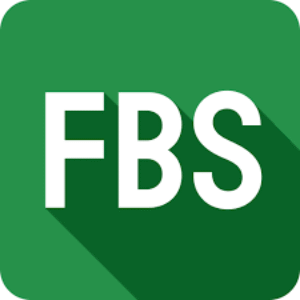
ECN forex brokers have risen in popularity among traders of all levels for their superior trade execution and transparent pricing. ECN (Electronic Communication Network) brokers connect you directly with liquidity providers and other market participants, enabling ultra-fast order matching with minimal interference. In this article, we’ll explain what ECN trading means, why execution quality is so important, and rank the 5 best ECN forex brokers known for delivering top-tier execution. From low latency and low slippage to tight spreads and strong regulation, we cover everything you need to know. Whether you’re a beginner looking for a reliable platform or a seasoned scalper seeking lightning-fast fills, these ECN brokers offer the best execution in the industry.
Overview: 5 Best ECN Forex Brokers Offering Best Execution
| Broker | Spreads & Commission | Execution Speed | Regulation | Platforms | Best For |
|---|---|---|---|---|---|
| IC Markets (Est. 2007) |
0.0-0.1 pips
$7/lot RT
Raw Spread Account
|
<40ms avg
NY4 & LD5 Equinix servers
|
ASIC
CySEC
FSA
|
MT4
MT5
cTrader
|
High-frequency traders, scalpers, algorithmic trading (60% of trades are automated)
|
| Pepperstone (Est. 2010) |
0.0-0.3 pips
~$7/lot RT
Razor Account
|
20-30ms
99.9% fill rate without requotes
|
ASIC
FCA
CySEC
DFSA
|
MT4
MT5
cTrader
TradingView
|
Active traders needing advanced platforms, social trading enthusiasts
|
| Tickmill (Est. 2014) |
0.0 pips
$4-6/lot RT
Pro Account (volume-based)
|
<0.20 seconds
LD4 Equinix servers
|
FCA
CySEC
FSCA
|
MT4
MT5
|
Cost-conscious scalpers, high-volume traders seeking minimal fees
|
| FP Markets (Est. 2005) |
0.0-0.2 pips
$6/lot RT
Raw Account
|
Fast & stable
NY4 & LD5 servers
|
ASIC
CySEC
|
MT4
MT5
|
Multi-asset traders, beginners needing analysis tools, diverse portfolio trading
|
| Key to Markets (Est. 2010) |
0.0 pips
$8/lot RT
PRO Account
|
Excellent
Negligible slippage reported
|
FCA
FSC
|
MT4
MT5
|
UK traders wanting top-tier regulation, copy trading enthusiasts, transparency-focused traders
|
Understanding ECN Trading in Forex
What does ECN mean? ECN stands for Electronic Communication Network, a digital system that automatically matches buy and sell orders in the forex market. An ECN forex broker uses this network to link traders directly to liquidity providers (banks, financial institutions, other traders) without a dealing desk in between. In simpler terms, an ECN broker aggregates prices from multiple sources and shows you the best available bid/ask quotes, then passes your orders straight through for execution. This model contrasts with market maker brokers, which are the counterparty to your trades and set their own prices.
Key features of ECN trading:
ECN brokers typically offer variable, ultra-tight spreads (often near zero on major pairs) and charge a transparent commission per trade instead of marking up spreads. Because they aren’t taking the other side of your trade, ECN brokers don’t trade against you or requote prices, reducing the chance of price manipulation. Traders get access to a deep pool of liquidity with potentially better pricing – ideal for strategies like scalping, news trading, and high-frequency trading. ECN trading accounts often require a slightly higher minimum deposit and charge commissions, but the benefit is raw market spreads and fast execution.
Expert insight: “ECN accounts are renowned for their quick execution, variable spreads, and the enhanced potential they offer for automated trading strategies,” explains Jitan Solanki, a forex industry analyst. Because ECN brokers match orders electronically among participants, they enable direct market execution with immediate confirmations and no dealing-desk intervention.
ECN vs. STP vs. Market Maker:
You might also hear the term STP (Straight Through Processing). Many true ECN brokers are effectively STP brokers – they straight-through process your orders to external liquidity pools. The important distinction is that market makers internally fill orders and often have a conflict of interest (they profit when clients lose), whereas ECN/STP brokers earn only the commission or a small markup and want you to succeed so you keep trading. ECN trading tends to feel more “transparent” – you may even see an order book or Level II market depth in some ECN platforms, showing real-time bids and offers from participants.
ECN trading account: When opening an account with an ECN broker, you’ll usually have a choice between a “standard” account vs. “raw/ECN” account. Standard accounts might have no commission but slightly wider spreads (the broker adds a markup). True ECN accounts (sometimes called Raw or Pro) charge a commission (e.g. $6–$8 per round-turn lot) but give you the raw interbank spread, which can be 0.0–0.1 pips on majors. For example, a EUR/USD quote might be 1.12345/1.12346 on an ECN account (almost zero spread), and you’d pay a small commission per trade for that access. These accounts are favored by active traders since the overall cost can be lower than paying a fixed spread markup.
Why Execution Quality Matters
One of the biggest advantages of ECN forex brokers is the execution quality they offer. Execution quality refers to how reliably and quickly your trades are filled at the requested price. Several factors contribute to this:
- Speed and Latency: In fast-moving forex markets, execution speed is crucial. The best ECN brokers operate on low-latency networks, often using co-located servers (e.g. in Equinix data centers) to execute orders within milliseconds. Faster execution means you’re more likely to get the price you clicked. For instance, Pepperstone and Vantage boast execution speeds around 0.02 seconds (20ms) in ideal conditions, and IC Markets reports average execution under 40ms via its NY4 Equinix server farm. Such speeds dramatically reduce delays between your order and its fill.
- Slippage (Price Deviation): Slippage is the difference between the price you expect and the price your order actually fills at. It can occur due to rapid market movement or latency. High-quality ECN execution minimizes negative slippage – and can even yield positive slippage (price improvement) at times. By instantly matching orders in a deep pool, ECN brokers help ensure you get the best available price. In fact, during liquid conditions you’ll often experience zero slippage on an ECN account. Consistently low slippage protects profit for scalpers and day traders. (Keep in mind slippage can still occur in very volatile news events, but a good ECN broker will fill you as close to your requested price as possible.)
- Spreads and Liquidity: ECN brokers typically have multiple top-tier liquidity providers (LPs) feeding prices – big banks, financial institutions, etc. This competition means tighter spreads for you. It’s common to see EUR/USD spreads of 0.0–0.2 pips on ECN accounts during peak sessions. Deep liquidity also allows large orders to be executed without significant price impact. High liquidity + fast matching = better fills and less chance of requotes. As an example, IC Markets processes over $29 billion of FX trades daily and can source prices from 25+ liquidity providers, resulting in razor-thin spreads and reliable fills.
- Regulation and Transparency: The quality of execution is also about trust. Top ECN brokers are regulated by strict financial authorities (such as the UK FCA, ASIC in Australia, CySEC in Europe, etc.) who require fair dealing and best execution practices. Regulation ensures brokers disclose their order execution policy and abide by rules to fill client orders at the best possible terms. Many ECN brokers even publish execution statistics (fill rates, slippage percentages) to prove their performance. Choosing a regulated ECN broker means you can trade confidently, knowing there’s oversight and your broker isn’t quietly skewing execution.
- Platform Reliability: Finally, great execution is useless if the platform freezes or disconnects at the wrong time. ECN brokers typically support robust trading platforms like MetaTrader 4/5 and cTrader, known for stability. They also invest in high-quality server infrastructure. The brokers we list below all have strong uptime records and support features like one-click trading, VPS hosting for algos, and more – so that your trades execute smoothly when it counts.
Industry example: In an independent test of ECN brokers, Dukascopy’s ECN model delivered order execution in just 20–25 milliseconds on average with near-zero slippage, even during high-impact news events, according to James Barra of DayTrading.com. This kind of performance illustrates how a top ECN broker can fill trades extremely fast and accurately – a key advantage for short-term traders. While not every broker can match those exact stats, the ones we’ve selected below are all known for excellent execution speed and consistency.
Now that we’ve covered why ECN brokers are favored for execution quality, let’s dive into the 5 best ECN forex brokers that offer the best execution in 2025. We’ll detail each broker’s strengths (and potential drawbacks), including their platform features, spreads & fees, regulatory status, and what types of traders they’re best suited for.
5 Best ECN Forex Brokers for Best Execution
Below is our ranked list of the top ECN forex brokers globally, chosen for their outstanding execution speed, low spreads, and overall trading experience. Each of these brokers provides true ECN or direct market access trading accounts and has built a reputation for reliability.
1. IC Markets – High-Speed Trading with Raw Spreads
IC Markets is often considered the gold standard for ECN forex trading. Founded in 2007 in Australia, IC Markets has become the go-to broker for high-frequency and high-volume traders who demand ultra-fast execution and tight spreads. The broker is regulated by ASIC (Australia), CySEC (Cyprus/EU), FSA Seychelles, and others, offering both security and high leverage options (up to 1:500 via offshore entity). It connects to a vast network of liquidity providers, streaming raw interbank spreads starting from 0.0 pips on its Raw Spread account. Commissions are a low $7 per standard lot (round-turn), and there are no requotes or price manipulation – IC Markets purely passes on market prices.
IC Markets is especially known for its superb execution speed. The trading servers are co-located in New York (NY4) and London (LD5) Equinix data centers, resulting in average execution under 40 milliseconds. Traders can utilize MetaTrader 4, MetaTrader 5, and cTrader platforms, as well as integrate with third-party tools and APIs for algorithmic trading. With over 2,250 tradeable instruments (including 60+ FX pairs, indices, commodities, stocks, crypto CFDs), IC Markets offers deep liquidity across markets. This broker is a favorite for scalpers and algo traders – about 60% of its half-million daily trades are from automated systems. Scalping, hedging, and high-frequency strategies are all allowed with no restrictions.
-
Spreads from 0.0 pips with $7 commission
-
Execution speed under 40ms average
-
Regulated by ASIC and CySEC
-
Supports MT4, MT5, and cTrader platforms
-
No restrictions on scalping or automated trading
-
Free VPS and 24/7 customer support
-
Not available to U.S. clients
-
Offshore entity has less regulatory oversight
-
No proprietary trading platform
-
Limited educational resources
2. Pepperstone – Razor Sharp Spreads and Low Latency
Pepperstone is another top-tier ECN broker known for its lightning-fast execution and advanced trading technology. Launched in 2010 in Australia, Pepperstone has expanded globally and is regulated by multiple authorities including ASIC (Australia), FCA (UK), CySEC (Cyprus), DFSA (Dubai), and more. This broker’s flagship Razor account offers spreads from 0.0 pips on major FX pairs, paired with a low commission (~$7 round-turn per lot). Pepperstone’s emphasis on technology and liquidity means traders enjoy very low latency execution – often 20–30ms fills in normal conditions. In fact, Pepperstone was recognized as having one of the fastest execution speeds among retail brokers, which is why it appeals to scalpers and high-frequency traders.
Pepperstone supports a rich selection of platforms: MT4, MT5, cTrader, and even TradingView (via direct integration) for chart trading. It also provides a suite of smart plugins (e.g. cTrader Automate, MT4 Smart Trader tools) and allows API trading for those who want custom setups. The broker aggregates quotes from 20+ Tier-1 liquidity providers, ensuring deep liquidity and no dealing desk interference. Traders consistently report smooth trade execution with very few requotes or slippage issues on Pepperstone’s ECN infrastructure. With over 90 FX pairs and dozens of CFDs, plus support for social trading (Myfxbook, DupliTrade) and 24/5 customer support, Pepperstone is a well-rounded choice for both advanced and novice traders who demand quick, reliable execution.
-
Ultra-low latency with 99.9% fill rate
-
Spreads from 0.0-0.3 pips on majors
-
Supports MT4, MT5, cTrader and TradingView
-
Regulated by FCA, ASIC, and CySEC
-
Active trader rebates and guaranteed stop-loss orders
-
Educational content and market analysis provided
-
Not available to U.S. residents
-
CFD-focused only, no direct stock trading
-
Additional fees for guaranteed stops and funding
-
Inactive account fees may apply
3. Tickmill – Low-Cost ECN Brokerage for All Strategies
Tickmill has built a strong reputation as a cost-effective ECN broker that doesn’t compromise on execution quality. Founded in 2014, Tickmill is regulated in multiple jurisdictions – including FCA (UK), CySEC (EU), FSCA (South Africa) – and is known for its no-nonsense trading environment. With Tickmill’s Pro Account (ECN), traders get spreads from 0.0 pips on major pairs, paired with one of the lowest commissions in the industry (around $4–$6 per lot round-turn, depending on volume). This ultra-low pricing, combined with fast execution, makes Tickmill a favorite for scalpers and algorithmic traders who need to keep costs minimal. There are no requotes and no restrictions on strategies – you’re free to scalp, use EAs, or hedge positions as you see fit.
Tickmill’s execution infrastructure includes servers in Equinix LD4 (London) for optimal connectivity to liquidity providers. Trades are executed with an average speed well below 100ms, and the broker prides itself on very low slippage rates thanks to deep liquidity. While Tickmill doesn’t offer cTrader, it fully supports MetaTrader 4 and 5 on all device types, and even provides an advanced toolkit for MT4/5 (with extra indicators, chart tools, etc.). The broker’s product range includes 62 forex pairs, stock indices, commodities, bonds, and crypto CFDs – not as many instruments as some larger brokers, but covering all the major markets traders typically need. For those interested in safety, Tickmill’s FCA regulation means UK clients get FSCS protection up to £85,000 and overall the broker meets high standards for client fund security and transparency.
-
Spreads from 0.0 pips with $4-6 commission
-
Execution under 0.20 seconds with no requotes
-
Regulated by FCA, CySEC, and FSCA
-
All trading strategies allowed with no restrictions
-
MT4 and MT5 platforms with Autochartist
-
Zero or positive slippage on most trades
-
Only MetaTrader platforms available
-
Limited to 80-100 instruments
-
Not available to U.S. traders
4. FP Markets – Deep Liquidity ECN Trading with Extra Tools
FP Markets is an Australian broker (est. 2005) that offers a true ECN trading experience coupled with an extensive product range. FP Markets is regulated by ASIC (Australia) and CySEC (Cyprus), giving it a solid regulatory standing, and also has an entity in St. Vincent for certain global clients. This broker provides two main account types: Standard Account (ECN pricing with no commission, spreads from ~1.0 pip), and Raw Account (ECN pricing with raw spreads from 0.0 pips + $6 commission per round lot). The Raw ECN account is where FP Markets really shines – you get deep liquidity with spreads often at 0.0–0.2 pips and a commission of only $3 per side, which is slightly below the industry norm. Execution is via NY4 and LD5 servers and is very fast and stable. FP Markets emphasizes that it has no requotes and no dealing desk, so you’re truly trading on market prices.
One of FP Markets’ strengths is the breadth of its offering: over 70 currency pairs and 700+ share CFDs, plus indices, metals, commodities, and even cryptocurrencies – more than 800 instruments in total. All of these are accessible through MT4 and MT5 platforms (the broker’s primary platforms; no cTrader here). FP Markets supplements the MetaTrader platforms with useful tools like Autochartist and Trading Central for market analysis, which are free for clients. This adds value, especially for traders who like technical analysis and signal tools. The broker’s execution quality is consistently praised; during our research, trades on FP Markets’ ECN account showed low latency execution with zero requotes and very competitive spreads. It’s a great all-round ECN broker choice, suitable for beginners (thanks to a $100 minimum deposit and plenty of educational resources) and experienced traders alike.
-
Spreads 0.1-0.2 pips with no requotes
-
Commission $6 round-turn on Raw account
-
ASIC and CySEC regulated with 17 years experience
-
Autochartist and Trading Central analysis tools
-
Multi-asset trading including forex, stocks, and crypto CFDs
-
VPS services and Traders Toolbox suite
-
Only MT4 and MT5 platforms available
-
High leverage requires unregulated SVG entity
-
No in-house copy trading platform
5. Key to Markets – Transparent ECN Broker with an FCA Pedigree
Key to Markets is a true ECN broker that places a strong emphasis on transparency and client-focused service. Established in 2010 and headquartered in London, Key to Markets is regulated by the UK FCA (Financial Conduct Authority) as well as the FSC in Mauritius, giving it both top-tier oversight and global reach. This broker operates a pure ECN/STP model – it uses ECN technology to execute trades with no intermediaries or dealing desk, directly connecting traders to liquidity providers. Key to Markets offers two main account types: Standard (MT4/MT5 Standard) and PRO (MT4/MT5 Pro). Both account types give you ECN market access; the difference is that Standard accounts have no commission but a slightly wider spread (raw spread + ~1 pip markup), whereas PRO accounts have raw interbank spreads (starting near 0.0 pips) with a commission of $8 per lot round-trip. This commission is a tad higher than some competitors, but still reasonable and the trade-off is very tight spreads. Importantly, there are no requotes on either account type – even the Standard accounts get straight-through execution.
Key to Markets supports MetaTrader 4 and MetaTrader 5 platforms, and it also provides the Myfxbook AutoTrade service for copy trading (so clients can copy strategy providers within their ECN environment). With around 65 currency pairs and a range of indices, commodities, and share CFDs (over 180 instruments total), the broker offers enough variety for most traders. Execution speeds at Key to Markets are excellent – the broker has invested in high-end infrastructure, and many clients report very swift order fills with negligible slippage. Scalpers and algorithmic traders are welcome: you can deploy EAs, scalp or hedge without restrictions. Being FCA-regulated, Key to Markets also provides FSCS deposit protection (up to £85,000) for UK clients and follows strict compliance in handling client funds. This broker’s ethos of transparency is evident in its published stats and no-nonsense trading conditions, making it a hidden gem for ECN forex trading.
-
No dealing desk with authentic market prices
-
FCA regulated with FSCS insurance up to £85K
-
MT4 and MT5 platforms on all devices
-
Standard and PRO account options available
-
Copy trading via Myfxbook AutoTrade
-
No restrictions on trading strategies
-
PAMM accounts and interest on large balances
-
Not available to U.S. clients
-
Commission $8 per lot higher than competitors
-
No cTrader or proprietary platform
-
Modest instrument selection for specialized traders
Conclusion: Finding Your Best ECN Broker
Choosing the “best” ECN forex broker ultimately comes down to your specific trading needs and preferences. All five brokers we’ve profiled offer outstanding execution speed, tight spreads, and reliable platforms – the hallmarks of quality ECN trading. If you prioritize the absolute lowest trading costs and are comfortable with MetaTrader, a broker like Tickmill or FP Markets might be ideal. If you need cTrader or want a broader platform selection, IC Markets or Pepperstone would be top of your list. Traders who value top-tier UK regulation and a boutique approach might lean toward Key to Markets, which delivers a very transparent ECN service under FCA oversight.
No matter which broker you choose from this list, you’ll be benefiting from first-rate execution – with high speeds, minimal slippage, and deep liquidity. These conditions can make a tangible difference in your trading results, especially if you’re doing short-term or high-volume strategies. Before committing, it’s wise to test a broker’s platform with a demo or small live account, observe the execution (e.g. during different market sessions), and see if the overall experience suits you. Also consider other factors like customer support responsiveness, deposit/withdrawal options, and any extra tools or features that matter to you (for example, FP Markets’ analytics tools or Pepperstone’s social trading integrations).
In the fast-paced world of forex, having a broker that consistently offers fast, fair trade execution is a key edge. The five ECN brokers above have proven themselves in this regard. With strong regulatory backgrounds and a commitment to best execution practices, they allow traders around the globe – from beginners to professionals – to trade with confidence and efficiency. Here’s to finding the ECN broker that becomes the perfect trading partner for you.
[ECN = Electronic Communication Network; MT4/MT5 = MetaTrader 4/5 platforms; VPS = Virtual Private Server]
FAQ
What is an ECN forex broker?
ECN forex broker is a broker that uses an Electronic Communication Network to directly connect traders with liquidity providers (banks, other brokers, etc.) for trade execution. Unlike a market maker, an ECN broker doesn’t take the opposite side of your trades. Instead, it aggregates real-time bid and ask prices from multiple participants and fills your orders at the best available price on the network. The result is very tight spreads (often near zero, plus a commission) and fast, transparent execution with no dealing desk intervention. ECN brokers simply match buyers’ and sellers’ orders electronically, so you get true market pricing and typically superior execution speed.
How does ECN execution differ from market makers?
The main difference is how your trades are processed. With an ECN broker, your orders are sent to the open market – they’re matched with other clients or liquidity providers via the ECN technology. The broker isn’t setting the price; they just facilitate the trade and charge a commission. This means no requotes and often better fill prices, especially in fast markets, since you’re competing in a broad liquidity pool. In contrast, a market maker broker internally “makes the market” for you – your trade is usually filled by the broker’s own book at a price they quote. Market makers can widen spreads and are more prone to requoting or rejecting orders during volatility because they assume more risk (they may trade against you or hedge elsewhere). In summary, ECN = direct market execution with variable spreads and commission, Market Maker = broker-mediated execution with fixed or marked-up spreads. ECN execution is generally preferred by active traders for its transparency and speed, whereas market makers sometimes offer simpler pricing (no commissions) that may appeal to some beginners.
Are ECN brokers better for scalping or day trading?
Yes – ECN brokers are often considered better for scalping and active day trading. This is because scalpers rely on very small price movements, so they need the tightest spreads and fastest execution possible. ECN accounts usually provide spreads close to 0.0 pips on major pairs, which, even after adding a commission, tend to be cheaper for high-frequency trading than a broker with a 1-2 pip fixed spread. The rapid execution (orders filled in milliseconds) that ECN brokers offer also means your scalp trades are more likely to be filled at your intended price with minimal slippage. Additionally, ECN brokers impose no restrictions on scalping – you can open and close trades in seconds if you wish, and there are no “minimum pip distance” rules on stop-loss or take-profit. Day traders similarly benefit from these factors. In contrast, some non-ECN brokers (market makers) frown upon or limit scalping because it can be harder for them to manage. Overall, if you’re a scalper or very active trader, an ECN broker with a reliable, low-latency platform is usually the optimal choice for performance and cost.
What is Key to Markets in forex?
Key to Markets is the name of a forex brokerage firm – specifically, it’s a regulated ECN forex broker. Founded in 2010, Key to Markets offers traders direct ECN access to the forex market via MetaTrader 4 and 5 platforms. The company is known for its transparent electronic execution (no dealing desk) and is regulated by the UK Financial Conduct Authority (FCA) as well as the FSC Mauritius. In practice, Key to Markets provides two types of trading accounts: a Standard account (zero commissions, with a small spread markup) and a PRO ECN account (raw interbank spreads plus a commission). Traders choose Key to Markets for its combination of strong regulation, fast ECN execution, and support for various strategies (scalping, hedging, EAs are all allowed). So, “Key to Markets” isn’t a trading concept or term – it’s the brand of a broker that exemplifies the ECN model in forex trading.











